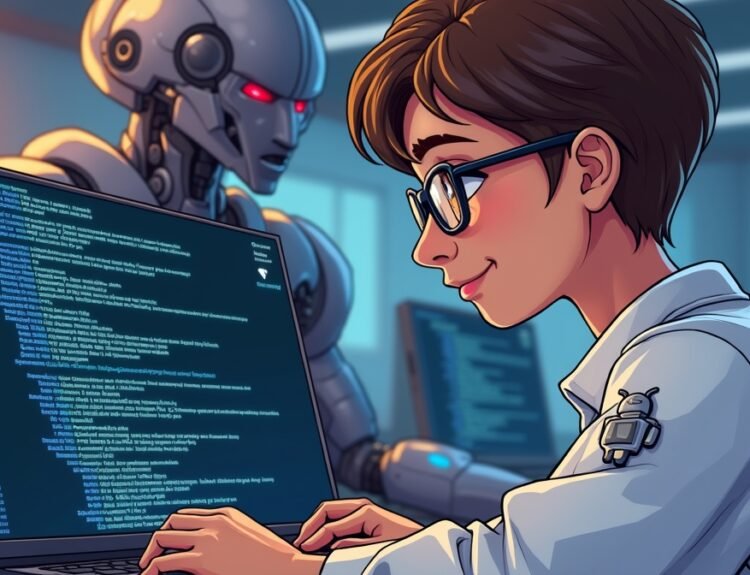Gaming has evolved from simple pixelated screens to immersive virtual worlds filled with intricate storylines, realistic graphics, and dynamic interactions. The growth of gaming has been fueled not just by the advancement of hardware and software but also by the creative contributions of the modding community. Mods, or modifications, allow players to tweak, enhance, and redefine their gaming experiences, offering infinite possibilities beyond what developers initially intended. Among the most fascinating developments in this sphere are pblemulator mods, which have revolutionized how players interact with emulated games.
Understanding the Concept of Game Mods
Before diving into pblemulator mods, it’s crucial to understand what mods are and why they hold such significance in gaming. Mods can vary from minor cosmetic changes, like altering a character’s outfit, to major overhauls that introduce new gameplay mechanics, levels, or storylines. Essentially, mods act as extensions of the original game, created either by independent developers or enthusiastic gamers.
There are several types of mods, each serving a different purpose:
- Cosmetic Mods: Alter the visual appearance of characters, items, or environments without changing the gameplay mechanics.
- Gameplay Mods: Introduce new challenges, mechanics, or objectives that redefine how the game is played.
- Storyline Mods: Expand or completely rewrite the narrative, adding depth to the existing plot.
- Utility Mods: Offer tools or enhancements that improve usability, performance, or accessibility.
The flexibility and creativity mods bring to games have attracted millions of players worldwide, creating communities dedicated to sharing, improving, and experimenting with these modifications.
Emulators and Their Role in Gaming
Emulators are another cornerstone of modern gaming culture. They are software programs designed to replicate the hardware of a gaming console, allowing games designed for that console to run on different devices, such as PCs or smartphones. Emulators are essential for preserving older games, enabling them to reach new audiences long after their original release pblemulator.
Key benefits of emulators include:
- Accessibility: Players can enjoy games from different consoles without owning the original hardware.
- Enhanced Performance: Emulators often include options for higher resolutions, faster frame rates, and improved graphics compared to the original hardware.
- Customization: Emulators can be paired with mods, allowing players to personalize their gaming experience extensively.
It is at this intersection of emulation and modification that pblemulator mods play a pivotal role, pushing the boundaries of what emulated games can offer.
The Emergence of PBLEMULATOR MODS
Pblemulator mods are specialized modifications designed specifically for use with emulated games. Unlike generic mods that are often platform-independent, are optimized for emulators, ensuring compatibility and performance enhancements tailored to the emulated environment. These mods are known for offering unique features such as graphical upgrades, custom game mechanics, and user-friendly interfaces, making them a popular choice among dedicated gamers.
The rise of pblemulator mods can be attributed to several factors:
- Community-Driven Innovation: Enthusiastic gamers and developers constantly share insights, creating an ever-growing repository of modifications.
- Preservation and Enhancement: Older games can be revitalized with modern features, making them appealing to new generations.
- Flexibility and Customization: Players can tailor the game to their preferences, enhancing replay value and personal engagement.
Exploring the Different Types of PBLEMULATOR MODS

There is a wide variety of pblemulator mods, each offering unique advantages depending on the type of game and the player’s goals. Here are some of the most popular categories:
1. Graphics and Visual Enhancements
One of the most sought-after types of pblemulator mods is graphical improvements. These mods can upgrade textures, lighting effects, character models, and environmental details. By leveraging the advanced processing capabilities of modern devices, these mods transform classic games into visually stunning experiences without altering the core gameplay.
2. Gameplay Mechanics Overhauls
Gameplay mods redefine how a game is played. In the context of emulated games, pblemulator mods can introduce new combat systems, AI behaviors, or even entirely new mechanics. This type of modification keeps the game fresh, providing seasoned players with challenges that go beyond the original design.
3. User Interface Customization
User interface mods are another popular category. These mods enhance menus, HUDs (heads-up displays), and control schemes to improve usability and accessibility. Pblemulator mods often include features like remappable keys, simplified inventory systems, or cleaner on-screen indicators, making games more intuitive and enjoyable.
4. Content Expansion
Content expansion mods add new levels, quests, characters, or storylines to the original game. With pblemulator mods, players can experience a game almost as if it were a new release. This category often attracts storytellers and designers who wish to extend the narrative universe of beloved games.
How to Safely Install PBLEMULATOR MODS
Installing mods can be intimidating, especially for newcomers. While are designed to be compatible with emulators, users must exercise caution to ensure safety and stability. The following steps outline a reliable process:
- Backup Original Files: Always create backups of the original game and emulator files to prevent data loss.
- Download from Trusted Sources: Only use mods from reputable communities or verified developers.
- Check Compatibility: Ensure the mod version matches your emulator and game version.
- Follow Installation Instructions: Many pblemulator mods include detailed instructions—read them carefully to avoid conflicts.
- Test Incrementally: Start with one mod at a time to ensure it functions properly before combining multiple modifications.
By following these steps, players can enjoy pblemulator mods without compromising the integrity of their gaming experience.
The Impact of PBLEMULATOR MODS on Gaming Communities
Mods, particularly pblemulator mods, have a profound impact on gaming communities. They foster collaboration, creativity, and knowledge sharing among players. Forums, social media groups, and dedicated websites provide spaces where modders exchange ideas, troubleshoot issues, and showcase their creations.
Community engagement around mods often leads to:
- Crowdsourced Innovation: Collective problem-solving results in more sophisticated and stable mods.
- Cultural Preservation: Emulated games with mods maintain relevance, keeping classic titles alive for new generations.
- Learning Opportunities: Aspiring developers and designers gain hands-on experience in coding, art design, and game mechanics through modding.
In essence, pblemulator mods not only enhance individual gameplay but also strengthen the bonds within gaming communities.
Challenges and Considerations
Despite the numerous advantages, using pblemulator mods comes with its challenges. Players must consider potential issues such as:
- Compatibility Conflicts: Some mods may not work well together, causing crashes or glitches.
- Performance Issues: Graphically intensive mods can strain hardware, leading to lag or instability.
- Security Risks: Downloading mods from unverified sources can expose devices to malware.
- Legal Concerns: Modding certain games may breach copyright or terms of service agreements.
Being aware of these challenges ensures that players can navigate the world of pblemulator mods responsibly and safely.
Success Stories and Popular Examples
The popularity of pblemulator mods is reflected in several notable examples that have captivated the gaming world. From classic RPGs to iconic platformers, these mods have reinvigorated the gaming landscape:
- Enhanced Graphics in Retro RPGs: Mods have transformed pixelated worlds into high-definition experiences, attracting both nostalgic players and newcomers.
- Custom Difficulty Modes: Some pblemulator mods introduce adaptive AI that challenges even veteran players, increasing replayability.
- Extended Storylines: Narrative mods expand beloved games, offering new plot twists and characters that enrich the original story.
These success stories demonstrate the transformative power of pblemulator mods, proving that thoughtful modifications can breathe new life into even decades-old games.
Tips for Creating Your Own PBLEMULATOR MODS
For those interested in stepping into the world of mod development, creating pblemulator mods can be a rewarding endeavor. Here are some tips for aspiring modders:
- Start Small: Begin with minor changes to learn the tools and processes.
- Leverage Community Resources: Tutorials, forums, and guides are invaluable for learning modding techniques.
- Test Rigorously: Debugging ensures that mods function correctly and don’t conflict with other modifications.
- Document Your Work: Provide clear installation instructions and changelogs for users.
- Seek Feedback: Engaging with the community helps refine the mod and ensures a better user experience.
Developing pblemulator mods requires creativity, technical skill, and persistence, but the results can be deeply satisfying for both the creator and the gaming community.
The Future of PBLEMULATOR MODS

The future of pblemulator mods is intertwined with the evolution of gaming technology and community-driven development. Emerging trends include:
- Integration with VR and AR: Mods may soon enhance emulated games with virtual and augmented reality experiences.
- AI-Assisted Modding: Artificial intelligence can help automate complex mod creation, making it accessible to more users.
- Cross-Platform Compatibility: Improved emulator support may allow pblemulator mods to function seamlessly across PCs, consoles, and mobile devices.
- Cloud-Based Mod Management: Online platforms could simplify mod installation, updates, and sharing.
As technology progresses, pblemulator mods will continue to redefine the possibilities of gaming, offering more personalized and immersive experiences than ever before.
Conclusion
The world of gaming has been profoundly enriched by mods, and pblemulator mods represent a unique frontier where emulation meets innovation. From enhancing graphics to expanding storylines and refining gameplay mechanics, these modifications unlock new dimensions of entertainment and creativity. For players, provide a way to revisit classic games with fresh perspectives, while for developers, they offer an avenue to experiment, learn, and contribute to thriving communities.
By embracing the possibilities offered by pblemulator mods, gamers are not merely playing—they are shaping the evolution of interactive entertainment, proving that the power of creativity knows no bounds.
Whether you are a casual player, a dedicated enthusiast, or an aspiring mod developer, exploring pblemulator mods is a journey into a limitless world of gaming potential. By understanding the intricacies, benefits, and challenges of modding, players can enjoy a richer, more engaging experience that honors both the past and the future of gaming.
With the continued growth of emulators, gaming communities, and innovative tools, the landscape of pblemulator mods promises endless opportunities for those willing to explore, experiment, and create. It is a testament to the enduring power of imagination and collaboration in shaping the games we love.



